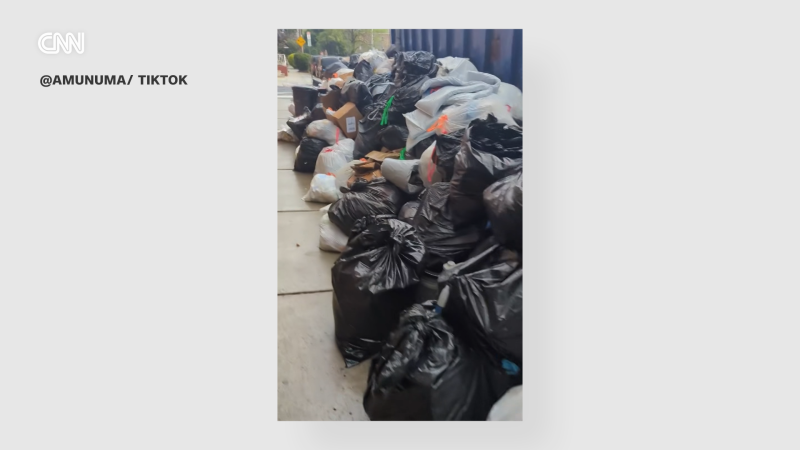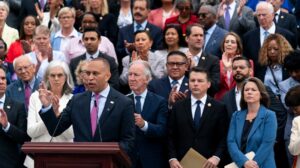
Philadelphia is grappling with an unsightly and unhygienic crisis as mountains of garbage line its streets. This follows a strike by one of the city’s largest unions representing municipal workers, who are demanding higher wages and more comprehensive benefits. The strike, which began earlier this week, has caused significant disruptions in waste collection services, leading to overflowing trash bins and growing frustration among residents.
The union, representing thousands of city workers, initiated the strike after negotiations with city officials reached an impasse. Workers argue that their current compensation does not reflect the rising cost of living and the increased demands of their jobs, particularly during the COVID-19 pandemic. The strike has left the city scrambling to find temporary solutions to manage the waste crisis.
Impact on Philadelphia’s Residents
Residents across Philadelphia have expressed their concerns over the piling garbage, which poses health risks and diminishes the quality of life in affected neighborhoods. The unsightly heaps of trash have also attracted pests, exacerbating the situation. Local businesses, particularly those in the food and hospitality sectors, are feeling the strain as they struggle to maintain cleanliness and hygiene standards.
“It’s becoming unbearable,” said Maria Lopez, a resident of South Philadelphia. “The smell is awful, and I’m worried about the potential health hazards for my children.”
Negotiations and Union Demands
The striking workers are calling for a 15% increase in wages over the next three years, along with improved health benefits and safer working conditions. City officials, however, have countered with a more modest proposal, citing budget constraints and the financial impact of the pandemic on municipal resources.
According to union leader John Thompson, the demands are not only fair but necessary. “Our members have been on the front lines, keeping the city running during the pandemic. They deserve fair compensation and benefits that reflect their hard work and dedication,” he stated.
“Our members have been on the front lines, keeping the city running during the pandemic. They deserve fair compensation and benefits that reflect their hard work and dedication.” – John Thompson, Union Leader
Historical Context and Comparisons
This is not the first time Philadelphia has faced a strike of this magnitude. In the late 1970s, a similar labor dispute led to widespread disruptions in city services, including waste collection. The current situation draws parallels to that era, highlighting ongoing challenges in balancing fiscal responsibility with fair labor practices.
Experts suggest that the city must find a sustainable solution to prevent future strikes. “Labor disputes of this nature can have long-lasting impacts on city operations and public perception,” said Dr. Emily Carter, a professor of labor relations at the University of Pennsylvania. “It’s crucial for both parties to come to an agreement that acknowledges the workers’ contributions while considering the city’s financial realities.”
Looking Ahead: Potential Solutions and Outcomes
As negotiations continue, city officials are exploring alternative measures to manage the waste crisis, including contracting private waste management companies and deploying non-striking city employees to assist with trash collection. However, these are temporary fixes that do not address the root cause of the labor dispute.
The outcome of the negotiations will likely set a precedent for future labor relations in Philadelphia. Both the city and the union are under pressure to reach a resolution that satisfies workers’ demands without overburdening the city’s budget.
Meanwhile, residents are left hoping for a swift resolution to restore normalcy and cleanliness to their neighborhoods. The situation underscores the critical role that municipal workers play in maintaining the city’s infrastructure and the importance of fair labor practices in ensuring their continued dedication and service.
As the strike continues, all eyes remain on the negotiation table, where the future of Philadelphia’s city services hangs in the balance.







